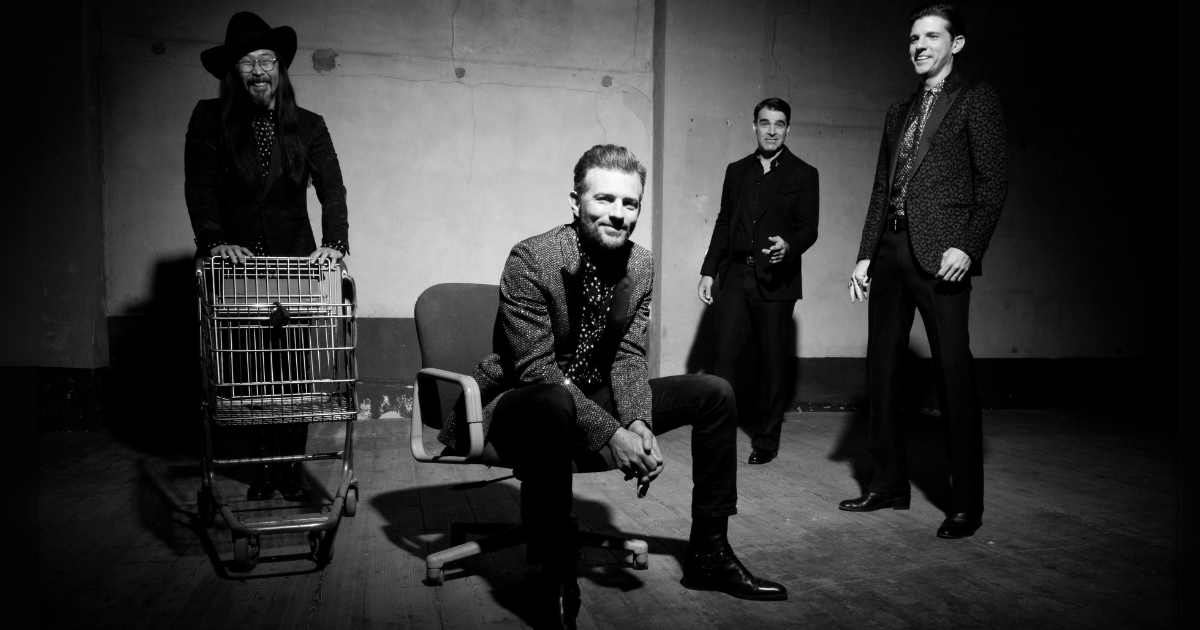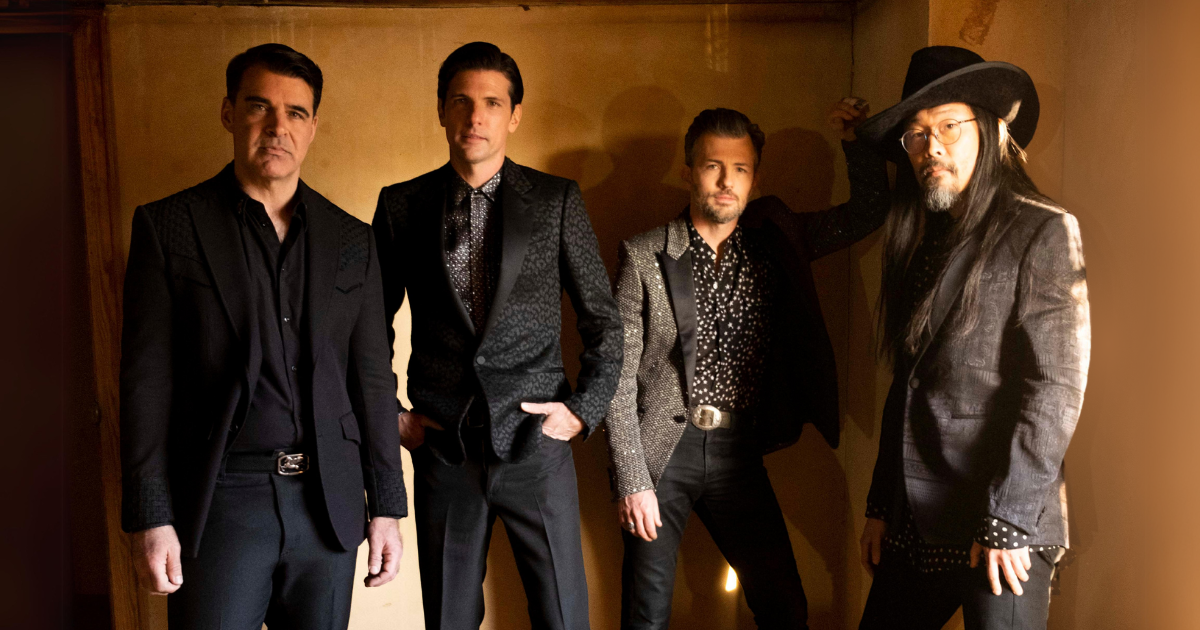Over the nearly two-and-a-half decades since their debut, the Avett Brothers have constructed their own creative universe.
They’ve released 11 studio albums, earned a Grammy award (plus three more noms), and bounded around stages for countless tour dates and festivals the world over. May It Last, a documentary film about the influential North Carolina group, offered a glimpse at the band’s dynamic through big and small screens.
Scott has also been a working visual artist since before The Avett Brothers as a band even entered the public consciousness, earning a BFA in studio art from East Carolina University in 2000 and depicting Southern family life through paintings and sculptures that would go on to make moving exhibitions—all while he also created stunning album cover imagery (for his own band as well as the great Brandi Carlile) or provided the visuals for such epic music videos as “Head Full of Doubt / Road Full of Promise.”
Musical theater, too, has been touched by the Avetts: Their musical, Swept Away, will make its mark on Broadway this fall. But the band’s eleventh album, The Avett Brothers, feels less like a charge into new creative territory and more like a reflection on the other things that have sustained them over the years.
“There’s certainly an unsettling feeling in that shadowy twenties and thirties where you get trapped into thinking that you are what you make,” Scott told Holler Country last year. “I’m settling into a season of life where I’m welcoming the reality that I am because I am, not I am because I do.”
That realization gets top billing on The Avett Brothers. Classic ballad “2020 Regret” sounds so quintessentially Avetts that it could have easily appeared just about anywhere in their catalog, if not for the veiled references to the year. It, too, embraces the idea that a life without regrets is less about what you do than it is about the people you do it alongside.
“Life cannot be written,” read the lyrics on album standout “Never Apart.” “It can only be lived.” The song muses on a long-term relationship; it’s presumably a romantic one, but would it be so crazy to listen to it through the lens of the band and its legacy?
Most bands don’t wait twenty-plus years into their trajectory to release a self-titled album — in large part because a lot of them simply don’t last that long. It’s a banner accomplishment to forge a musical path that sustains itself in any capacity for multiple decades; it’s entirely another to push forward with nearly the exact same cast of characters you started with, still collaborating and creating with the same heart and satisfaction as before.
“It’s trust. It’s a trust that’s built in,” explained Seth to NPR last month when asked about the secret to the band’s longevity. “My trust in that Scott has my best interests in mind is something that it would never occur to me to question.” He may be referring specifically to the lifelong brotherly bond he shares with the other Avett in the group, but certainly the larger band has formed a different kind of family.
Bob Crawford, who has been playing upright bass (among other instruments) with the band since 2001, took a year off to support his daughter’s battle with cancer and Avett fans followed and supported the journey at every turn. Cellist Joe Kwon, too, has an immovable fixture in the band since 2007; crowds go wild for him at every show. “We’ve been lucky and blessed to transform with each other,” added Scott, “to change with each other and watch this happening to us.”
“Cheap Coffee,” one of the album’s underrated masterpieces, makes great fodder for the idea of a group that constantly evolves and grows together. Producer Rick Rubin, who has been with the band since their major label debut, I and Love and You, apparently cut all the lights out and had them record the song entirely in the dark. The story holds up well for a song that engages so many senses: the distant smell of coffee, the feel of an outgrown apartment, the sound of a kid imagining the very highest number they possibly can. “Didn’t know how, didn’t know how good it was,” the group sings, lyrically balancing major milestones with the types of tiny details in a memory that feel insignificant at the time, but become the stuff of nostalgia decades on.
“We’ve always had this quasi-fatalist attitude, like oh, this might be the last time we ever do it,” joked Seth in an interview between their tenth and eleventh albums. “Now we’re really like, okay, we’re probably only gonna do this one more time.” In the interview, this line reads as a joke, but fans have speculated the same thing many times, too, cobbling together similar statements from the documentary film and various other interviews to try and guess how many more albums they might get.
Regardless of the band’s plans for the future, this eleventh album embraces plenty that fans love about the past. “For the Love of a Girl” is the jump-around number you can’t wait to hear live. And “Country Kid” offers an ambling glimpse at a rural North Carolina upbringing, with a heavy twang and plenty of backwoods imagery to match.
Taken altogether, The Avett Brothers feels like a worthy prize for the five-year wait between releases. “We’re not in the same hurry we used to be,” Scott explains. “Our home lives are super busy. We’re teaching kids things.”
In a way, maybe the greater message of The Avett Brothers is that the work will always be there — the opportunity to create, to explore, to have some kind of output. So maybe it’s really not so surprising that the band would wait to release an eponymous album so many years into their career, or that they might take five years since their last full-length to release it, or that they might not make promises about the future. As their influence has grown, so have the demands for their time and the expectations around what they make — not just how much of it there should be, but what it should sound like and how it should reflect the world around them.
What a beautiful thing to ignore those voices, to be enlightened by the past without being imprisoned by it; to turn off all the lights and sing in the dark.
(Editor’s Note: Read more about our selection of the Avett Brothers as Artist of the Month, explore their discography, and check out our Essentials Playlist here.)
Photo Credit: Crackerfarm

